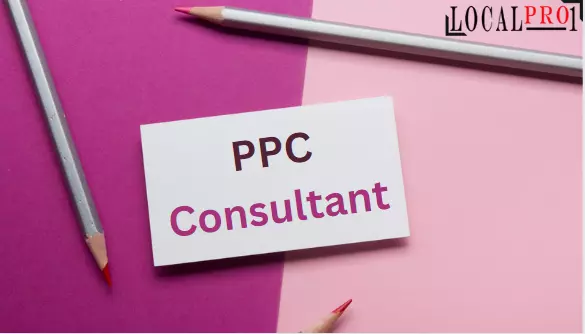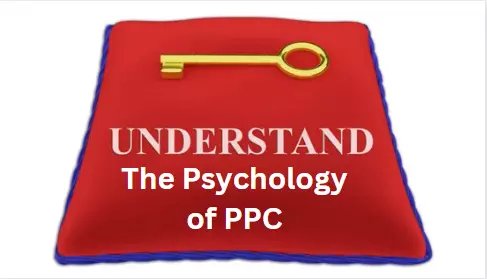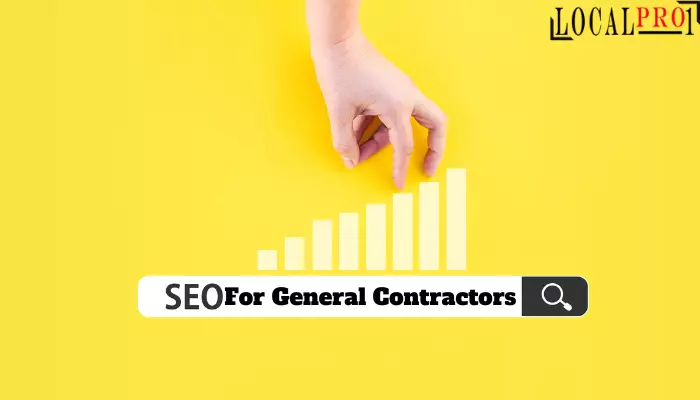Content Management System (CMS) has become an integral part of website development and maintenance in the digital era. It plays a crucial role in organizing, creating, and managing digital content. A CMS simplifies the process of publishing, editing, and updating content, making it accessible to users without requiring extensive technical expertise. In this context, understanding the significance of choosing the right CMS for Search Engine Optimization (SEO) is paramount.
What is the best CMS for my website?
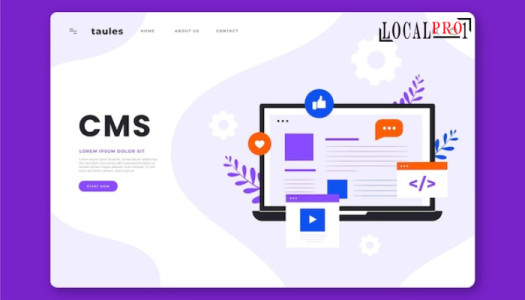
Choosing the best CMS (Content Management System) for your website depends on various factors, including your specific needs, technical expertise, and the type of website you want to build. Here’s an overview of the popularbest CMS for SEO options you’ve listed. Local Pro1 provides the best services of Best CMS for SEO.
WordPress:
Pros: Extremely user-friendly, vast community support, numerous themes and plugins available, suitable for various types of websites.
Cons: Can be vulnerable to security issues if not properly maintained, some advanced customization may require coding knowledge.
Joomla:
Pros: Powerful and flexible, suitable for medium to large websites, good for e-commerce, robust user permissions system.
Cons: steeper learning curve than WordPress, fewer extensions compared to WordPress.
Drupal:
Pros: Highly customizable and scalable, suitable for complex websites, excellent for community-based sites, robust security features.
Cons: Steeper learning curve, not as beginner-friendly as WordPress, fewer available themes and plugins.
Magento:
Pros: Excellent for e-commerce, robust and scalable, extensive features for online stores, good for large enterprises.
Cons: Complex for small or simple websites, resource-intensive, may require dedicated hosting.
Wix:
Pros: Extremely user-friendly with a drag-and-drop interface, suitable for small to medium-sized websites, includes hosting.
Cons: Limited customization compared to other CMS, may be less suitable for complex websites, subscription fees for advanced features.
SEO-friendly Features:
WordPress:
WordPress is renowned for its SEO-friendly features. It offers numerous plugins, such as Yoast SEO, which helps optimize content, meta tags, and sitemaps. Its clean permalink structure and responsive design contribute to better search engine rankings.
Joomla:
Joomla also provides good SEO capabilities, with features like customizable URL structures and metadata options. However, it may require additional extensions for advanced SEO functionalities. Extensions like SH404SEF can enhance SEO capabilities.
Drupal:
Drupal excels in SEO with its flexible content types and taxonomy system. It allows fine-tuning of URLs, meta tags, and other SEO elements. Drupal’s built-in caching and performance optimization contribute to faster page load times, positively impacting SEO services.
WordPress:
WordPress is widely recognized for its user-friendly interface. Its intuitive dashboard and straightforward content management make it accessible to users with varying technical skills. The availability of themes and plugins simplifies customization.
Joomla:
Joomla has a steeper learning curve compared to WordPress. It offers more complex functionalities, making it a better choice for users with some technical expertise. However, this complexity may be a hindrance for beginners.
Drupal:
Drupal is known for its flexibility and robustness, but it comes with a steeper learning curve. It is suitable for developers and users with technical proficiency who require advanced customization options.
WordPress:
WordPress boasts an extensive library of themes and plugins, allowing users to customize their websites extensively. The platform’s large community ensures a constant influx of new options for customization.
Joomla:
Joomla offers a good level of customization, with a variety of templates and extensions available. While not as extensive as WordPress, Joomla provides enough flexibility for users with specific design and functionality requirements.
Drupal:
Drupal is highly customizable and scalable, making it a preferred choice for large and complex websites. Its modular architecture allows for in-depth customization, but this comes at the cost of a steeper learning curve.
Does a CMS Matter for SEO?

Yes, the choice Best CMS for SEO (Search Engine Optimization) in various ways. Here are three key aspects of the importance of CMS for SEO.
Impact on Website Structure:
- The structure of your website plays a crucial role in SEO. A well-organized and easily navigable site structure can enhance user experience and contribute to better search engine rankings.
- Some CMS platforms provide more flexibility and control over website structure than others. A CMS that allows for the creation of clean and hierarchical URLs, easy navigation menus, and logical categorization of content can positively influence SEO.
Content Management and Optimization:
- Content is a fundamental component of SEO, and a CMS greatly influences how you manage and optimize your content.
- A good CMS should offer features for easily creating and updating content, including text, images, videos, and meta tags. The ability to add alt tags, meta descriptions, and other SEO-related elements directly through the CMS can streamline optimization efforts.
- Regularly updating and adding fresh content is essential for SEO, and a user-friendly CMS can make this process more efficient.
Technical SEO Considerations:
- Technical SEO involves optimizing the website structure and performance to improve its visibility in search engines.
- The choice of CMS can impact technical aspects such as page speed, mobile responsiveness, and the generation of XML sitemaps. Search engines often prioritize websites that load quickly and provide a good user experience, so a CMS that facilitates technical optimization is beneficial for SEO.
- Some CMS platforms are better equipped to handle issues like duplicate content, canonical tags, and other technical SEO elements, which can impact how search engines perceive and rank your site.
Essential CMS Features for SEO
On-page SEO capabilities:
Meta tags and descriptions: The CMS should allow users to easily customize meta titles and meta descriptions for each page. This helps search engines understand the content and improves click-through rates.
SEO-friendly URLs: The Besr CMS for SEO should generate clean, descriptive URLs that include relevant keywords. Avoidance of generic or randomly generated URLs can contribute to better search engine rankings.
Image optimization: The ability to add alt text, captions, and properly compress images is crucial for SEO. This ensures that search engines can understand the content of images, improving accessibility and search visibility.
Mobile responsiveness:
The CMS should support responsive web design, ensuring that the website functions well and looks good on various devices, including smartphones and tablets. Google considers mobile-friendliness as a ranking factor.
Page speed optimization:
A CMS that allows for efficient coding, caching, and content delivery network (CDN) integration can help improve page loading times. Faster-loading pages contribute to a better user experience and are favored by search engines.
XML sitemaps and robots.txt:
The CMS should automatically generate XML sitemaps, making it easier for search engines to crawl and index the site. Additionally, the ability to customize and manage the robots.txt file is essential for controlling search engine bots’ access to specific areas of the website.
SSL and secure connections:
Ensuring that the CMS supports SSL (Secure Sockets Layer) and facilitates the use of HTTPS is vital. Secure websites are favored by search engines, and SSL is considered a ranking factor. It also helps in establishing trust with users.
Benefits of Using a Best CMS for SEO
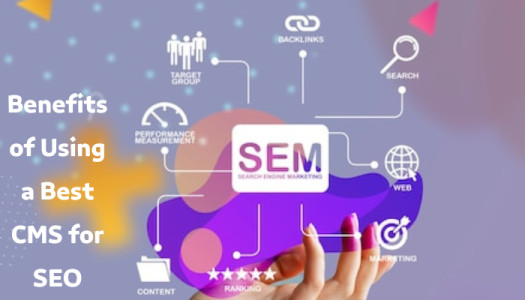
Streamlined content creation and management:
- CMS platforms provide a user-friendly interface for creating and managing content. This simplifies the process of adding new pages, updating existing content, and organizing information.
- Efficient content management helps maintain a consistent and well-organized website structure, which is favorableBest CMS for SEO.
SEO-friendly templates and themes:
- Many CMS platforms offer templates and themes that are designed with SEO best CMS for SEO practices in mind. These templates often include clean code, mobile responsiveness, and other elements that contribute to better search engine rankings.
- SEO-friendly templates can help ensure that your website is easily crawlable by search engines, improving its visibility in search results.
Regular updates and improvements:
- CMS developers regularly release updates to improve performance, security, and functionality. Staying up-to-date with the latest CMS version ensures that your website benefits from these enhancements.
- Search engines often favor websites that are well-maintained and regularly updated. CMS updates contribute to a better user experience, positively impacting SEO.
User and role management for collaborative SEO efforts:
- CMS platforms allow for the creation of multiple user accounts with varying levels of access. This is beneficial for collaborative SEO efforts, as different team members can contribute to content creation, optimization, and other SEO tasks.
- Role-based access ensures that individuals have appropriate permissions, promoting efficient teamwork without compromising security.
Conclusion
Best CMS for SEO” depends on various factors such as the specific needs of your website, the level of technical expertise you possess, and your overall digital marketing strategy. However, some CMS platforms are renowned for their SEO-friendly features. WordPress, for instance, offers a plethora of plugins and customizable options that can enhance search engine optimization efforts. Joomla and Drupal also provide robust SEO capabilities but may have a steeper learning curve. Feel free to contact us for any type of query or service related to the Best CMS for SEO.
FAQs
What Is Cms, And Why Is It Important For Seo?
CMS stands for Content Management System. It is a platform that helps users create and manage digital content. For SEO (Search Engine Optimization), the right CMS can significantly impact a website’s visibility on search engines by providing tools to optimize content.
Why Is It Crucial To Choose The Best Cms For Seo?
The choice of CMS directly influences how well a website can be optimized for search engines. The best CMS for SEO offers features like customizable meta tags, clean code structure, and efficient content management, all of which contribute to better search engine rankings.
What Features Should I Look For In A Cms For Optimal Seo Performance?
Some key features include SEO-friendly URL structures, easy management of meta tags, XML sitemaps, mobile responsiveness, fast loading times, and clean, search engine-friendly code.
Which Cms Is Considered The Best For Seo Purposes?
While opinions may vary, popular choices for SEO-friendly CMS include WordPress, Joomla, and Drupal. WordPress, in particular, is widely acclaimed for its SEO plugins and user-friendly interface.
Does The Cms Affect Page Loading Speed, And Why Is It Important For Seo?
Yes, the CMS can impact page loading speed. A fast-loading website is crucial for SEO, as search engines favor websites that provide a better user experience. Choose a CMS that helps optimize images, utilizes caching, and minimizes unnecessary code.













